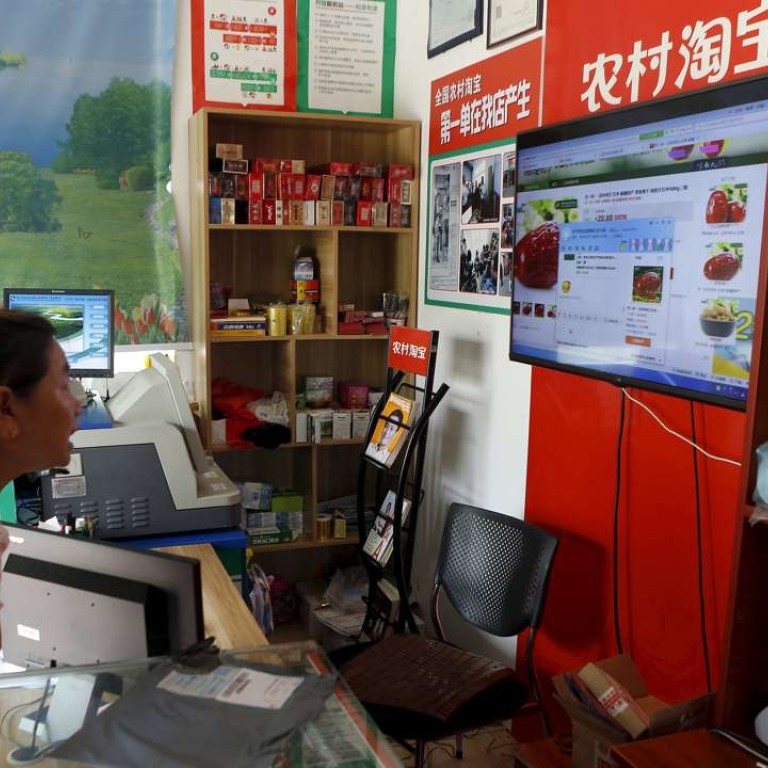
Alibaba plans further investment to reach rural China’s rural communities
Plan includes 10 billion yuan for infrastructure to back rural e-commerce
Chinese internet giant Alibaba Group plans further expansion and investment in mainland rural areas, seeking to bring e-commerce to remaining villages yet to receive cellular mobile service.
“Today, quality farm produce from villages is unable to sell to urban consumers because of insufficient infrastructure and information. How to put through the last one kilometre is important, so we need to improve internet and logistics,” said Sun Lijun, vice president of Alibaba who in charge of the rural connect plan.
With a three-year-plan of investing 10 billion yuan (HKS$11.8 billion) in rural e-commerce, Sun said the money will be used on infrastructure and building more service centres.
Alibaba plans to more than double its county-level service centres to 700 by the end of March next year, Sun said. The number of village-level centres will surpass 50,000 from the current 15,000 by then, and a total of 100,000 are planned to be operational by the first quarter of 2017, he added.

“On average, it just takes two to three days for online transactions in rural areas to reach 100 million yuan, we see huge potential in the next five to 10 years,” he said.
Rural areas have become a battlefield of China’s e-commerce giants as the online sales growth is slowing in urban areas where the market has become saturated.
Leading e-commerce player JD.com in March announced plans to open physical stores in 10,000 towns this year. Electronics and home appliance retailer Suning Commerce Group also said it would invest 5 billion yuan in the Chinese rural market in 2016.
“A huge investment is needed to develop rural e-commerce. But so far I don’t think any of our competitors are able to do so,” Sun said.

The two competitors are expanding in towns but have yet to reach villages which are more backward and need more investment in internet and logistics infrastructure, Sun said.
“We welcome more counterparts to participate in establishing rural services and it will push us to go forward, but it’s not enough to have just a slogan, it needs big investment at an early stage,” he said.
The next stage for Alibaba’s rural e-commerce ambition is to link up the financial and logistics services to build up an ecosystem, Sun said.
Ant Financial, Alibaba’s finance affiliate, is providing lending and payment services, while the company’s logistics unit, Cainiao Network, is also expanding its network to more counties, he said.
Xiong Jian, head of rural logistics at Cainiao, said the coverage will be expanded to 1,000 counties next year from the current 380.
Working with local logistics players and making use of big data and technology, Cainiao can simplify the whole process so as to reduce costs.
“The consumer demand from rural areas is strong, but the inconvenience and high costs have deterred them from shopping online. There is a huge untapped market as half of the 700 million residents in rural areas now do not shop online,” Xiong said.
Cainiao will also consider introducing service charges for large companies as Cainiao’s logistics network can help them extensively tap into the rural market, he said.
Cainiao is still losing money but Xiong said he expects to turn to profit in the near future.
Alibaba is the owner of The South China Morning Post.

